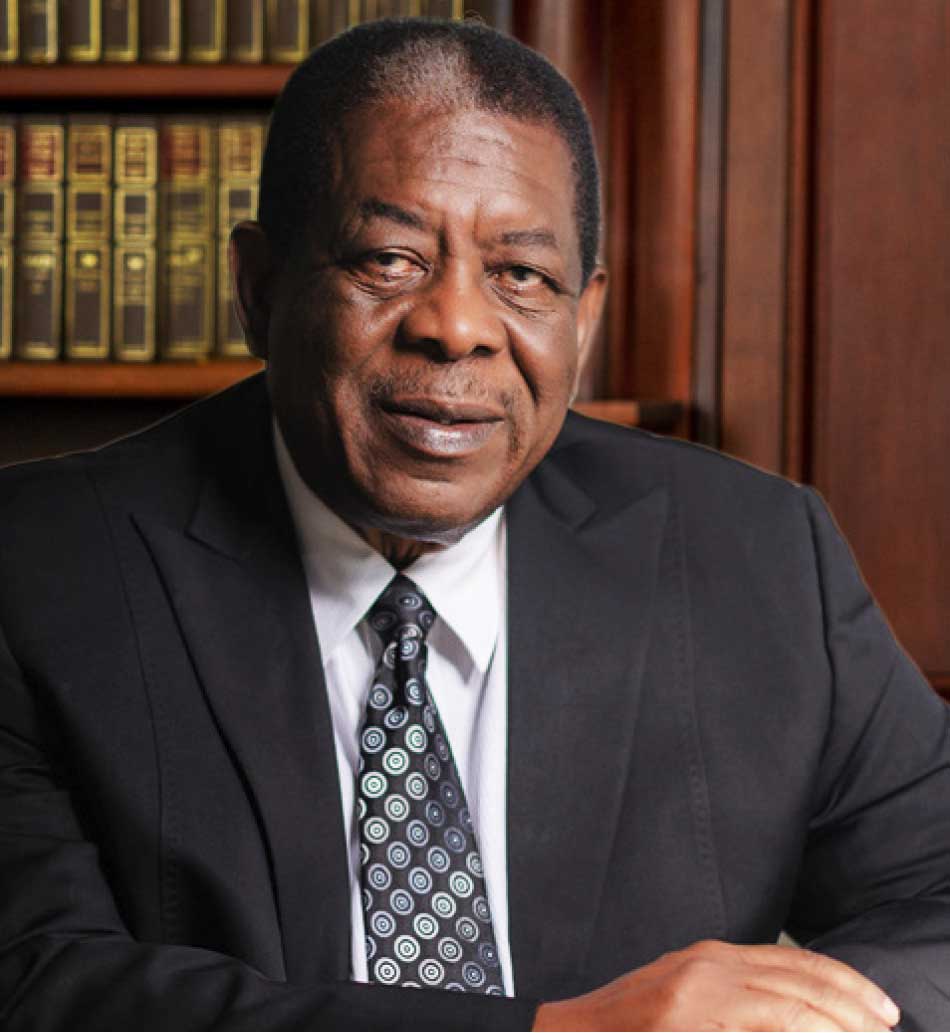Foremost on the agenda of the Caribbean Court of Justice (CCJ) is to inculcate the notion that the jurisdiction of the court relates to the provision of justice in a timely manner to the overall citizenry.

And as Saint Lucia initiates the move to gain accession to the CCJ – the region’s highest appellate jurisdiction – the island’s CCJ (Accession) Committee is setting the wheels in motion for this ultimate transition.
Referring to the decisions being undertaken by several CARICOM states to ‘break ties’ with the Privy Council, Chairman of the CCJ (Accession) Committee Sir Denis Byron said one of the most important challenges that citizens from the region face is that they may feel aggrieved or dissatisfied with the timeliness and efficacy of some “striking obstacles” while acceding justice, in having the Privy Council as its final appellate court.
“That is something that Caribbean Court of Justice will remedy,” Sir Byron told reporters at a recent press briefing.
“And you need only look at the experience that the other countries have had …as citizens of every economic standing, every social standing have brought litigation before the court,” he added.
Furthermore, Sir Byron feels that “having the Caribbean Court of Justice as the final court will widen the access to justice for the people of Saint Lucia.”
Will the accession to the CCJ, help to accelerate the process towards implementation of the pace of justice in Saint Lucia?
Sir Byron stated that whereas, he may not be aware of how much attention has been focused in this vein, the CCJ has sponsored a lot of activities, involving “judicial reform …and revision of the tradition learning both through the improvement of the judiciary, the legal fraternity and informing the public.”
He said, it is anticipated that “the highest court of the land” would actively engage in assisting the courts that it supervises to improving the level of its performance and improving the information of justice.
Sir Byron recalls that the pioneers of the CCJ sought to establish an institution “that is capable of resolving disputes…and so, the role of the Caribbean Court of Justice is to contribute to the stability and certainty of the components in a single economy by resolving disputes that exists.”
He noted the process of adjudication as one of the methods applicable to resolving disputes, and “over the years there have been a number of issues” where there were concerns involving the interpretation and application of the matter.
Sir Byron said, the court has been addressing these issues and for the most part cases were brought by “individual cooperations’, or individual (citizens) who felt that the benefits of the treaty (Treaty of Chaguaramas), they were not benefitting from it in the way that they should have.”
The Revised Treaty of Chaguaramas established the Caribbean Community including CARICOM’s single Market and Economy.
The Objective: The Treaty provides inter alia, for integration of efforts in economic matters, co-ordination of foreign policies and functional cooperation in a list of areas including Labour administration and industrial relations and social security among subscribing states.
Signatories to the treaty that was established on July 5, 2001, included; Antigua and Barbuda, Barbados, Belize, Dominica, Grenada, Guyana, Jamaica, St. Kitts and Nevis, Saint Lucia, St. Vincent and the Grenadines, Suriname, and Trinidad and Tobago.
The former chief justice listed among the complainants– regional manufacturing firms that export products to other countries.
Sir Byron said there were several instances of cases emanating from countries such as Guyana and Suriname where they have had to undertake a review of their trading legislation.
He explained that there may be cases where an open judicial process is made to the court (CCJ) for “an advisory” opinion and this transcends to “an applicant or a group of countries who are in discussion” with the relevant authorities on such matters.
Sir Byron adds that the court can resolve issues by adjudication over the provision of advisory reviews on legal matters.
Alongside civil and criminal matters, the CCJ also resolves political disputes and other such related cases. Additionally, the CCJ mediates on industrial relations cases and other commercial issues.
On the issue of the CCJ’s involvement in resolving political issues, Sir Byron clarified: “The structure of the CCJ and the jurisdiction that it will exercise is identical to the jurisdiction, which the Privy Council is currently exercising.”
He explained that an individual or group cannot bring a case directly to the appellate jurisdiction of the court. However, firstly, the case would have to be lodged locally and if the court of appeal gives a decision with which the individual is dissatisfied, then they can appeal from that locale.
With Saint Lucia accessing the CCJ as its final court of appeal, Sir Byron asserted that the main difference is: “There would be more people who can afford to manage the issue through the Caribbean Court of Justice, currently. So you would find a greater utilization of the recesses (court) …and that might mean a wider range of issues can be heard.”













